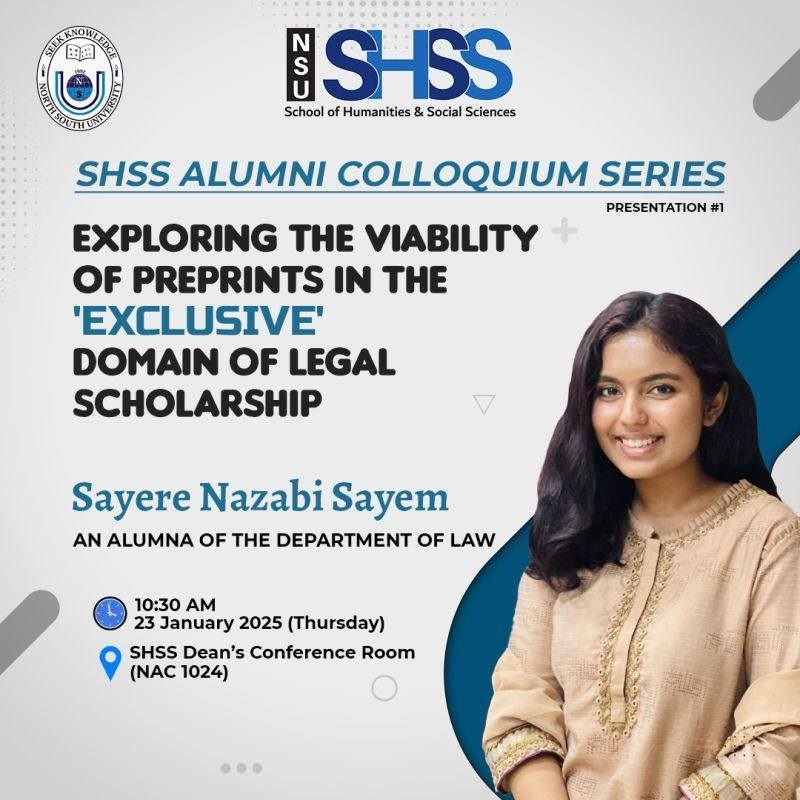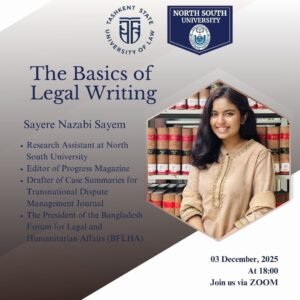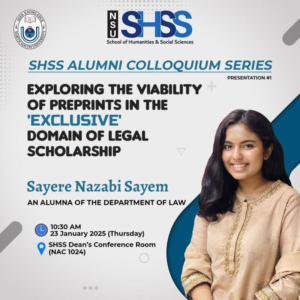Preprints as a form of reference in academic papers?
Although preprints are an amendable form of writing that is yet to be peer-reviewed by a journal, it has garnered wide recognition and acceptance across several disciplines. However, such is not the case in humanitarian disciplines like law. Citations of preprint are rarely seen in academic writings nor discussed in formal conferences or discourses. Well, why not?
There is an exclusivity in the legal scholarship where references like books, book chapters and journal articles will gain prevalence, and the rest of the kind of data will be looked down upon in a way, and in the process of doing so, the biggest publishing houses receive the widest recognition and respect. It is completely alright. But I wonder to myself if we are deviating from the original intention of writing the paper and conducting research – that is to disseminate the study as much as possible to the world.
The ‘hierarchy’ or exclusivity of forms of publications as references for a legal article may take away the purpose of the research in the first place – the wider dissemination of the study. In such cases, preprints, being an open-access form of publication may be a supplementary tool of research, complementing peer-reviewed journals. Since the services are freely accessible online, it could be a feasible option to initiate scholarly discourse and protect one’s legal research before it gets published elsewhere.
Given the fact that other forms of ‘micro-writings’ like academic blogs are gaining acceptance in the legal scholarship, preprints could be the next lucrative arena to explore, particularly for resource-constraint scholars who do not want to invest time or money but can protect their work through publishing preprints until it is submitted in a journal.
In contrast, other disciplines like material sciences have witnessed a booming growth of accepting preprints as acceptable and credible forms of publications and, at times, even more than that of traditional journal publishing. While platforms like SocArxiv (preprint server for social sciences and law) exist, the usage of preprints in the legal domain is still considerably low.
I do not in any manner discount the importance of peer-reviewed journals but rather want to open frontiers for the acceptance of preprints as a form of ‘acceptable’ reference for research endeavours, which is currently discouraged by several legal journals around the world.
I also acknowledge that solely relying on preprints is not an option but complete disregard of it is not a solution either.
Drafting a journal article is a tedious process – a long process even to get the first draft approved. This risks the topic of research to lose relevance over time till the date of its publication. For time sensitive topics or any other topic in general that requires immediate and widespread attention, essays in the form of blog articles may be deemed as an option (considering the fact that blogs do usually take lesser time than journal articles to get published). To write something original, authors would have to find out what has already been said, in order to circumvent repetition or sometimes even to collect ideas. Young curious researchers wanting to write on the very topic, would not have to wait for months for their preferred academic to share his/her views; if it were possible to view their essays within weeks.
An original idea constitutes as the stepping stone of an academic piece. Shorter pieces of writing with one such original idea can be deemed like a working paper or an idea in progress, for it to turn into a longer piece one day. It can also be deemed as a public notebook to accumulate the ideas that would also be visible to the public for criticism. Not that such initial stage of ideation would lower its credibility as an academic piece but this could initiate a discourse that would further develop the idea. As long as the idea has been meticulously put forth and in an original manner, it is worthy of citing in academic writings.
This excerpt was later presented in the inaugural session of the North South University School of Humanities and Social Sciences (SHSS) ‘Alumni Colloquium’ Series.











